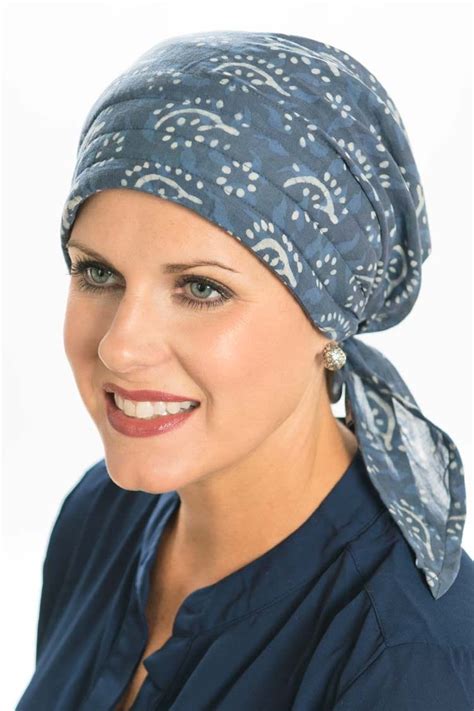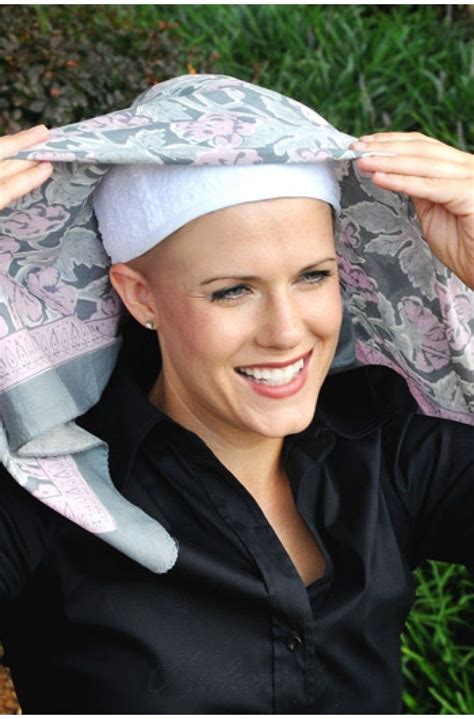Cancer treatment can take a toll on a person’s physical and emotional well-being. Head covers, also known as chemo caps or cancer hats, are essential accessories for cancer patients who experience hair loss due to chemotherapy or radiation. These covers not only provide warmth and comfort but also empower patients by offering a sense of style and normalcy during a challenging time.

Understanding the Need for Head Covers
Hair loss is a common side effect of many cancer treatments. According to the American Cancer Society, approximately 65% of patients undergoing chemotherapy lose all or most of their hair. This hair loss can be emotionally distressing, leading to feelings of self-consciousness, isolation, and a diminished sense of self-worth.
Head covers offer a discreet and stylish solution to this challenge. They can help patients feel more comfortable, confident, and in control of their appearance.
Types of Head Covers
There are numerous types of head covers available, each with its unique features and benefits.
| Type | Description |
|---|---|
Beanies |
Soft, stretchy caps that provide warmth and comfort |
Turbans |
Elegant and versatile wraps that can be styled in various ways |
Scarves |
Lightweight and breathable fabrics that can be tied or draped around the head |
Hats |
Structured caps or sun hats that offer sun protection and style |
Bandanas |
Triangle-shaped cloths that can be tied in different ways for a variety of looks |
Choosing the Right Head Cover
Choosing the right head cover depends on personal preferences, comfort level, and the desired look.
Some factors to consider include:
- Material: Cotton, bamboo, and silk are breathable and soft fabrics that can help minimize scalp irritation.
- Fit: Head covers should fit snugly but not too tightly, ensuring comfort and coverage.
- Style: Head covers come in a wide range of colors, patterns, and styles to match any taste and preference.
- Purpose: Consider the intended use of the head cover. For daily wear, comfort and ease of use are key. For special occasions, elegance and style may be more important.
Benefits of Head Covers
Beyond providing warmth and covering hair loss, head covers offer numerous benefits for cancer patients.
- Improved self-esteem: Head covers can help patients feel more confident and less self-conscious about their appearance.
- Reduced anxiety and depression: By addressing hair loss, head covers can alleviate anxiety and depressive symptoms associated with cancer treatment.
- Social support: Wearing a head cover can be a way for patients to connect with others who are going through similar experiences.
- Increased comfort: Head covers can protect the scalp from sun exposure, cold temperatures, and friction caused by wigs.
Table 1: Materials and Benefits of Head Covers
| Material | Benefits |
|---|---|
Cotton |
Soft, breathable, and affordable |
Bamboo |
Antimicrobial, moisture-wicking, and silky smooth |
Silk |
Luxurious, hypoallergenic, and temperature-regulating |
Modal |
Stretchy, wrinkle-resistant, and ultra-soft |
Lycra |
Elastic, form-fitting, and quick-drying |
Table 2: Head Cover Styles for Different Occasions
| Occasion | Suggested Styles |
|---|---|
Everyday Wear |
Beanies, turbans, scarves, bandanas |
Formal Events |
Turbans, head wraps, berets, fascinators |
Outdoor Activities |
Hats, visors, bandanas |
Sleep |
Nightcaps, satin bonnets, turbans |
Warm Weather |
Visors, sun hats, scarves |
Table 3: Head Cover Care and Maintenance
| Material | Care Instructions |
|---|---|
Cotton |
Machine wash cold, tumble dry low |
Bamboo |
Hand wash cold, lay flat to dry |
Silk |
Dry clean only |
Modal |
Machine wash cold, gentle cycle, tumble dry low |
Lycra |
Hand wash cold, hang to dry |
Table 4: Head Covers as a Form of Empowerment
| Empowering Features | Impact on Cancer Patients |
|---|---|
Personalization |
Allows patients to express their individuality and style through their head cover |
Control over Appearance |
Empowers patients to take ownership of their appearance and challenge societal norms |
Symbol of Strength |
Head covers can serve as a reminder of the patient’s resilience and determination |
Community Connection |
Head covers can help patients connect with other cancer survivors and support groups |
Inspiration and Support |
Head covers can inspire others and raise awareness about the challenges of cancer |
Conclusion
Head covers are an essential part of the cancer care journey. They provide comfort, style, and support to patients during a time of vulnerability. By understanding the types, benefits, and care instructions for head covers, patients can choose the ones that best meet their individual needs. Head covers also serve as a powerful reminder of the resilience and strength of those who fight cancer.
